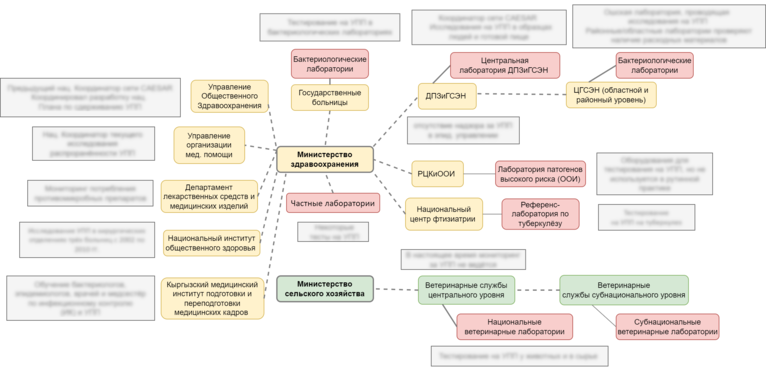Stengthening AMR coordination and surveillance in Kyrgyzstan
Project details
Year: 2024
Client: World Health Organization - Country Office in Kyrgyzstan
Objectives:
- Map the current capacities of Kyrgyzstan in relation to antimicrobial resistance coordination and surveillance across sectors.
- Retrieve international requirements and best practices for antimicrobial resistance coordination and surveillance adapted to the existing capacities in Kyrgyzstan.
- Develop recommendations on strengthening activities to be put in place at the short and medium term for antimicrobial resistance coordination and surveillance in Kyrgyzstan.
Deliverables:
- Workshop
- Report and companion presentation
Performed activities
Antimicrobial resistance occurs when infectious agents change over time and no longer respond to medicines, making infections harder to treat and increasing the risk of disease spread, severe illness, and death. antimicrobial resistance can be inherent or acquired by the inappropriate use of medicines.
We reviewed 24 documents related to antimicrobial resistance and Kyrgyzstan, along with 18 international guidelines of interest to retrieve relevant recommendations and best practices. A mission in Bishkek was conducted in June 2024 to interview 15 key informants in the human and animal health sectors, and to conduct a half-day workshop with 23 participants.
The following results were provided:
- Mapping of stakeholders from the human and animal sectors involved in coordination and surveillance of antimicrobial resistance in the country.
- Analysis of existing regulation.
- Current country capacities and challenges for coordination and surveillance of antimicrobial resistance in the country.
- Recommendations for activities that can be implemented at short and medium term to strengthen coordination and surveillance of antimicrobial resistance in Kyrgyzstan.

Figure 1. Map of stakeholders involved in antimicrobial resistance in Kyrgyzstan (specifics blurred)
